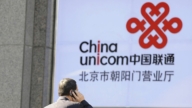【新唐人2015年01月15日訊】中共網信辦將在今年全面推進網絡真實身份信息管理,加大管控力度,包括微博、貼吧和網站等均實行「實名制」。這一動作引發外界擔憂。有評論認為,此舉是在加強控制言論自由和網絡訊息。
1月13號,中共互聯網信息辦公室召開新聞發佈會,公布了一批近期被關閉的網站、欄目和微信公眾號。
根據網信辦移動網絡管理局負責人徐豐的說法,中國除了即時通信實名制之外,今年將全面推進網絡真實身份信息的管理,包括微博、貼吧等均實行實名制。
大陸博客作家劉逸明:「現在管制的更為嚴厲,手段更為精緻,所以說在中國大陸的互聯網,實際上網民是沒有自由的,網絡實名制會導致很多人發言有所顧忌。」
原《陝西電視臺》記者馬曉明表示,網絡實名就是為了進一步管控網絡,進一步對人民實行信息封鎖,進一步剝奪人民信息交流的權利。
原《陝西電視臺》記者馬曉明:「主要的方面是甚麼呢?就是管控嚴格禁止披露社會真相的許許多多的信息發佈,和相互之間交流。再一個就是對國外許許多多的媒體的屏蔽,使中國人民始終處於它們這種信息灌輸,信息愚弄的控制之下。」
1月13號,美國人權組織「自由之家」的最新報告顯示,中共當局對敏感信息的封鎖,使得中國的年輕人因無知而對內容審核無所畏懼,轉而導致當局對內容的管控更加艱難。報告還說,中共對民眾的壓制,激化民眾的反抗情緒,可能會進入惡性循環。
南方街頭運動參與者賈榀:「他們確實也是沒那麼多恐懼感,因為沒有經歷父輩的這些文化大革命、大饑荒,包括89六四這樣殘酷的鎮壓,現在恐懼感沒那麼強烈,所以我覺得,其實這個網絡封鎖起不了甚麼實質上的作用,可能在短時間對網絡言論的走向,起到短暫的壓製作用。」
南方街頭運動參與者賈榀,是中國80後的網絡新生代人物之一。他表示,當年輕人發現中國的網絡被封鎖時,會更激發起他們的好奇心。
南方街頭運動參與者賈榀:「因為現在的80後90後的上網是非常多的,對網絡這塊訊息(掌握)非常快,當他們知道中國是網絡封鎖的這樣一個國家之後,內心就會有一種好奇,中國為甚麼要網絡封鎖,沒有封鎖網絡的地方又是甚麼樣的世界呢,然後就會想辦法去研究一些『翻牆』之類的技術。」
「自由之家」的這份報告還說,中共領導人習近平在2012年年底上臺後,當局對異議人士的鎮壓越來越嚴厲,但公民參與維權活動不但沒有減少,反而不斷增加。
賈榀:「國內現在這幾年的群體事件是很多的,說不定哪一次會引起連鎖反應,能更蔓延開來的話,可能真的會發生很大的全國性事件,所以他們的維穩其實也是很勉強的,很難去壓制去防止這樣的突發事件發生。
從2003年的網吧實行實名制,要求上網出示身份證,到現在的網絡「實名制」,這個問題一直在中國存在爭議。支持一方認為,此舉可以減少虛假信息甚至網絡犯罪活動,但反對者則認為,這會有助於中共壓制和打擊在網上的不同聲音。
大陸博客作家劉逸明:「很多真實的消息,很多包括內心的觀點,無法在網絡上進行暢說,這實際上會加劇社會的官民矛盾,短期來講,對於穩定社會穩定中共政壇有用,但長遠而言,實際上是埋下一顆定時炸彈。」
一名律師發表評論說,網絡實名制也是一柄雙刃劍,也可能帶來很大的副作用,比如,網民身份信息的洩露、網民遭受打擊報復、虛假身份註冊的增加等等。
事實上,在網絡實名制上路之前,中國民眾更想知道,公民以匿名發表網絡言論,是否屬於言論自由保障的範圍?國家禁止公民匿名發表網絡言論,又是否必要和正當?
採訪/田淨、李韻 編輯/黃億美 後製/舒燦
Beijing Will Implement Comprehensive Real-Name System
The Communist Internet regulator will tighten censorship
by implementing a comprehensive real-name system this year,
to include Chinese social platforms such as Weibo,
Baidu Paste Bar and other websites.
While the news causes concern, the regime is being
criticized to having stepped up its censorship on speech
and information free flow.
The State Internet Information Office (SIIO) announced in its
Jan. 13 news conference to close a number of websites,
columns and WeChat accounts.
SIIO official Xu Feng explained that in addition to instant
messaging real-name system, the real-name system will be
implemented in a comprehensive manner in cyberspace,
such as Weibo and Baidu Paste Bar.
Chinese blog writer Liu Yiming: The control is now more
stringent and the means more refined.
Netizens in China have no freedom.
The real-name system will bring scruples to
netizens’ online expression.
Former Shaanxi TV reporter Ma Xiaoming criticizes that the
cyberspace real-name system is a step further in Internet
censorship, blocking of information and depriving rights
of information exchange.
Ma Xiaoming: What does it entail?
This censorship strictly prohibits exposure of social issues
and mutual exchanges of information.
It also blocks foreign media.
Mainlanders are thus controlled by the instilled
and deceiving information.
Freedom House reported on Jan. 13 the following:
the CCP’s own censorship on the 1989 crackdown and other
incidents of regime violence has helped to create a generation
of citizens who are unfamiliar with the party’s potential
brutality, weakening what had been an
important deterrent to protests.
The report also described that the CCP is effectively trapped
in a vicious circle by broadening the targets of
repression and censorship.
Southern Street Movement campaigner Jia Pin: They indeed
have less fear than their fathers who had experienced
the Cultural Revolution, the Great Famine, and the brutal
repression on June 4, 1989.
The fear now is not so strong, so I think in fact, this
cyberspace censorship can’t play any
substantial blockade effect.
It’s probably a temporary repression on the Internet.
Jia Pin is the mainland Internet generation after the 80s.
He believes that blockage of Internet will only further arouse
curiosities among the netizens.
Jia Pin: Many people of the generations of the 80s and 90s
master the Internet very well.
When they realize the Internet blockage, they become curious.
Why is there Internet blockade?
What kind of world is it like without Internet blockade?
They will naturally think of ways to pass the “fire wall".
Freedom House reported, the overall degree of repression
has increased since Xi rose to power in November 2012…
and also fueled resentment and recruitment to the cause
of rights defense.
Jia Pin: There have been many mass incidents in
China these years.
It is possible a chain reaction could get initiated
and spread to result in a national event.
The stability maintenance is not going to be able to suppress
or prevent it from happening.
Since the Internet Cafe are required to implement the
real-name system with ID in 2003, the real-name system has
been a controversial issue in China.
Supporters believe the policy will reduce false information
and even cybercrime, but opponents argue that it would
facilitate the online repression by the Communist regime.
Liu Yiming: Many honest information and views can’t be
expressed freely online.
That will in fact exacerbate social conflict.
It is useful in maintaining stability for the regime
in the short term.
But in the long run, it is like a time bomb.
A lawyer commented that real-name system is a two-edged
sword, with great potential of side effects, such as exposure
of the netizen identification, retaliation against the netizen,
increase of false identity registration, and so on.
In fact, what’s puzzling to the Chinese is that,
whether or not anonymous online speech is within the scope
of protection of freedom of speech?
Also the question is if it is necessary and justified for the
State to prohibit citizens from anonymous online speech.
Interview/TianJing,LiYun Edit/Huang YiMei Post-Production/ShuCan




























